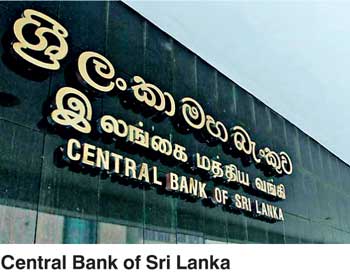Friday Feb 27, 2026
Friday Feb 27, 2026
Saturday, 10 February 2018 00:00 - - {{hitsCtrl.values.hits}}
 By Charumini de Silva
By Charumini de Silva
The Central Bank’s Financial Intelligence Unit (FIU) yesterday confirmed that it would take steps to have Sri Lanka removed from the European Union’s list of countries at risk for money laundering, though any change before November would be unlikely.
“The Financial Action Task Force (FATF) has put Sri Lanka on a grey list from November last year and generally the European Union (EU) follows it. We have now agreed to implement an action plan to strengthen the effectiveness of our anti-money laundering (AML)/counter-terrorist financing (CFT) measures. The FIU is doing its utmost to address and implement the action plan objectives by November,” a top official of the Central Bank told Daily FT on the condition of anonymity.
“Although, the FIU is located under the Central Bank there are many Ministries and Government agencies that are involved in implementing these measures and regulations. We need the fullest cooperation of all these institutions to help Sri Lanka get removed from the grey list of FATF,” the official said.
When asked if there was a deadline to implement these objectives, he said that until Sri Lanka addresses all issues, it was unlikely to get removed from the list of countries at risk for money laundering.
In a statement, the European Parliament on Wednesday said despite intense efforts by some Members of the European Parliament (MEPs), they have failed to achieve the 376-vote absolute majority needed to reject the inclusion of Sri Lanka, Tunisia, and Trinidad and Tobago in the European Commission’s list of non-EU countries considered to have strategic deficiencies in their anti-money laundering and terrorism financing regimes.
According to the FATF Improving Global AML/CFT compliance, in October 2017, Sri Lanka made a high-level political commitment to work with the FATF and the APG to strengthen the effectiveness of its AML/CFT regime and address any related technical deficiencies.
The FATF is an inter-governmental body established in 1989 by the Ministers of its Member jurisdictions. The FATF monitors the progress of its members in implementing necessary measures, reviews money laundering and terrorist financing techniques and counter-measures, and promotes the adoption and implementation of appropriate measures globally. In collaboration with other international stakeholders, the FATF works to identify national-level vulnerabilities with the aim of protecting the international financial system from misuse.
It was noted that Sri Lanka will work to implement its action plan to accomplish these objectives, including by: (i) enacting amendments to the MACMA to ensure that mutual legal assistance may be provided on the basis of reciprocity; (ii) issuing the CDD rule for DNFBPs, issuing any necessary guidance, and ensuring implementation of this rule has begun, by way of supervisory actions; (iii) enhancing risk-based supervision and outreach to FIs, and high risk Designated Non-Financial Businesses and Professions (DNFBPs), including through prompt and dissuasive enforcement actions and sanctions, as appropriate; (iv) providing case studies and statistics to demonstrate that competent authorities can obtain beneficial ownership information in relation to legal persons in a timely manner; (v) issuing a revised Trust Ordinance and demonstrating that implementation has begun; and (vi) establishing a TFS regime to implement the relevant United Nations Security Council Resolutions (UNSCRs) related to Iran, demonstrating that implementation has begun, and demonstrating that implementation has begun on the UN Regulation related to the Democratic People’s Republic of Korea.
However, to implement and address these measures by November it was highlighted that the support of all line ministries and Government institutions were critical.
The FATF’s decision making body, the FATF Plenary, meets three times per year.